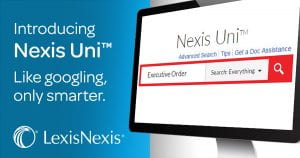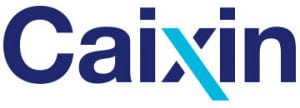
Catalogue record, available from: Supplementum Epigraphicum Graecum.
The Supplementum Epigraphicum Graecum systematically collects newly published Greek inscriptions as well as publications on previously known documents. It presents complete Greek texts of all new inscriptions with a critical apparatus; it summarizes new readings, interpretations, and studies of known inscriptions, and occasionally presents the Greek text of these documents. The online edition includes all Supplementum Epigraphicum Graecum (SEG) volumes, and will incorporate all future volumes in the series.
Supplementum Epigraphicum Graecum Online is automatically updated upon publication of the annual volume.
Like this eResource? Please leave a comment.
 Catalogue record, available from: Early English Books Online.
Catalogue record, available from: Early English Books Online.
Experience Early English Books Online now on the ProQuest Platform!
Access on the Chadwyck-Healey platform will be available concurrently until July 2020.
Key benefits of using EEBO on the ProQuest platform:
– Cross-searching with other databases – including Literature Online and Early European Books
– Text Creation Partnership – transcriptions of over 60,000 EEBO texts
– Ease of use – say goodbye to having to learn multiple, standalone interfaces
– Quicker and efficient – downloading a PDF, citing, saving, and sharing materials is now faster than ever
– Future improvements will be made automatically to EEBO, just like other products on the platform
If you are new to EEBO, what is it?
Early English Books Online (EEBO) contains digital facsimile page images of virtually every work printed in England, Ireland, Scotland, Wales and British North America and works in English printed elsewhere from 1473-1700 – from the first book printed in English by William Caxton, through the age of Spenser and Shakespeare and the tumult of the English Civil War. EEBO is enhanced by the Text Creation Partnership making it possible to search the full text of a book and read a transcription of the text. EEBO covers the database content of: Early English Books Tract Supplement, Thomason Tracts, Early English Books I & II.
For more information about this resource click here.
Like this eResource? Please leave a comment.

Catalogue record, available from: China eBook Hub.
Trial ends 30th September 2019.
To access the resources available via this trial, please click “My Resources” tab in the landing page.
Chinese eBooks Hub contains resources with a strong focus in the humanities and social sciences.
Like this database? Please leave a comment.

Catalogue record, available from: EduTV.
EduTV is a Video Streaming service of over 50,000+ broadcast programs from free-to-air and pay TV channels in Australia, including documentaries, news and current affairs, films and drama series. Coverage commences with 2006 and includes content across a wide range of learning areas. Free to air content is recorded from the ABC, SBS, NITV, 9, 7, 10, etc. channels. EduTV also includes several programs broadcast on Pay TV such as The History Channel, National Geographic, BBC Knowledge and Discovery channels.
EduTV makes it easy for lecturers and students to find and watch relevant television content instantly.
Features and benefits
- Immediate streaming access
- Content includes documentaries, drama, series and more from free-to-air and pay TV
- Archives of programs starting from 2006 with up to 120 new programs added weekly
- Instant institutional login—IP address authentication
- Accessible anywhere with an internet connection
- Simple and advanced searching with programs classified by subject areas
Key subjects
- Business and economics
- Culture and society
- Current affairs
- English language
- Geography and nature
- Health and physical education
- History
- Hospitality and tourism
- Indigenous studies
- Languages
- Legal studies
- Mathematics
- Media studies
- Performing arts
- Politics and government
- Religious studies
- Science and technology
- Visual arts and design
Like this eResource? Please leave a comment.

Catalogue record, available from: Nexis Uni.
LexisNexis Academic is transitioning to a new interface called Nexis Uni.
Nexis is moving to the new Nexis Uni interface as of 1 August 2019. Both versions of the database are available during July.
Before the semester kicks off, be sure to check out Nexis Uni—an exciting new research solution designed with and for digital natives like you. Nexis Uni enables quick discovery across all content types, personalized discipline pages for those who set up individual profiles and a collaborative workspace for group assignments. Start the semester at an advantage.
In case you need reminding what it is useful for:
o Nexis Uni features more than 15,000 news, business and legal sources, biographies and public records from LexisNexis—including U.S. Supreme Court decisions dating back to 1790—with an intuitive interface that offers quick discovery across all content types, personalization features such as Alerts and saved searches and a collaborative workspace with shared folders and annotated documents, in a single location.
- A personalized research experience with alerts, saved searches, annotated documents and suggested sources by discipline
- Sophisticated discovery tools that—with a single search—quickly sift through countless websites and databases and return a clear visual presentation of relevant results
- A collaborative workspace that reduces duplicative efforts on individual research and group projects through the ability to annotate and save searches or documents into shared folders
Bookmark our Nexis Uni Support page—www.lexisnexis.com/nexisunisupport for additional resources including tutorial videos, FAQs, user guides, tipsheets and so much more!
The following announcement is forwarded from AHILA-net (Association for Health Information and Libraries in Africa).
POPLINE has been a valuable resource to the population, family planning, and reproductive health community for over 40 years. Our collection of more than 400,000 records has provided students and researchers worldwide with access to journal articles, reports, books, unpublished resources, and full-text documents (to users in low- and middle-income countries). POPLINE is managed by the Knowledge for Health (K4Health) Project, which ends on September 10, 2019. The POPLINE website will retire on September 1, 2019. Where can I find alternative access to journal articles? Since POPLINE’s inception in 1973, many free resources have become available and offer alternative access to journal articles. These resources collectively meet the majority of POPLINE user requests. The following resources offer alternative access to journal articles:
– Google Scholar https://scholar.google.co.uk/
– PubMed Central https://www.ncbi.nlm.nih.gov/pmc/
– HINARI Access to Research in Health Programme – Provides free or low-cost online journal access to institutions in developing countries https://www.who.int/hinari/en/
– International Network for the Availability of Scientific Publications (INASP) – Provides services to improve health information access in developing countries https://www.inasp.info/
– Global Development Network/British Library of Development Studies (GDN/BLDS) – Provides services to research institutes in developing and transition countries http://www.gdn.int/en
– Highwire Press Free Access to Developing Economies – Provides free online access to its journals for selected countries http://highwire.stanford.edu/lists/devecon.dtl
– BMJ Journals Online – Free online access to BMJ journals is provided to selected countries https://journals.bmj.com/
For Popline’s full retirement announcement see https://www.popline.org/POPLINE-retirement-announcement

Catalogue record, available from: The Oxford classical dictionary.
The 4th edition of ‘The Oxford Classical Dictionary’ is the ultimate reference on the classical world. It contains over 6,200 entries with contributions from a team of 364 scholars and 15 specialist subject area advisors, it covers all aspects of the classical world from literature and history to religion, science, and archaeology.
As well as providing factual information, the Dictionary contains many thematic entries on subjects relevant to the 21st century such as nationalism, race, gender, and ecology. Anthropology and reception have been added as new subject areas, covering topics such as creolization and kinship, as well as dance reception and translation.
Like this eResource? Please leave a comment.

Catalogue record, available from: The Encyclopedia of Ancient History.
Unmatched in scholarship and diversity, The Encyclopedia of Ancient History is the definitive reference work for the study of the ancient world. This work is written and edited by an internationally diverse team of editors and contributors. It provides clear, concise, definitions and explanations of the key people, places, and events in ancient history. This encyclopedia spans the late Bronze Age through the seventh century CE, covering the entire ancient Mediterranean world including the Near East and Egypt. New content is published twice a year (summer and winter), with over 100 new articles per year.
Topics covered: Ancient Near East, Biographies of Classical Scholars, Bronze and Iron Age, Byzantium, Christianity, Classical Greece, Economy, Greco-Roman Egypt, Hellenistic World, Historiography, Jewish History, Late Antiquity, Law, Pharaonic Egypt, Places – East, Places – West, Religion, Roman Empire, Roman Intellectual and Cultural History, Roman Military History, Roman Republic, Science, Social History.
Like this eResource? Please leave a comment.

Catalogue record, available from: Caixin Global Trial.
Trial ends 14th June 2019.
This is a trial to Caixin Global’s free reading program. It includes additional titles to our standard “Caixin Global” subscription. These additional titles include: Caixin Digital Weekly, Caixin Editorial & Opinion. Caixin Global is a source of macroeconomics, finance and business intelligence about China.
The Caixin newsroom is recognized as an unrivaled producer of independent, investigative journalism in China, and a source of information for investors, business leaders, policy-makers, and academics.
Please follow registration instructions on catalogue record.
Like this database? Please leave a comment.
Trial ends 19th November 2019.
Harness intelligence to accelerate innovation and drug development
The University of Melbourne, Monash University, and WEHI have secured 5-months site-wide access to Clarivate Analytics drug development packages, Drug Research Advisor, Integrity and Biomarkers.
The partnership with Clarivate will give researchers unprecedented access to these industry class-leading tools that can empower both basic and translational biomedical research.
Integrity
Available via the Library catalogue.
Integrity, with the Biomarkers module, provides information across multiple disciplines to support successful drug research and development. It Integrates biological, chemical and pharmacological data, and is updated daily. This wealth of scientific pipeline data contains granular target and MOA information as well as the most extensive preclinical and clinical biomarker data linked to associated diseases and therapies.
Drug Research Advisor
Available via the Library catalogue.
Drug Research Advisor is a suite of applications that integrate the three major steps of preclinical research into a single cloud-based workflow.
Please follow access instructions as detailed in catalogue entries.
Like this database? Please leave a comment.
Number of posts found: 89






